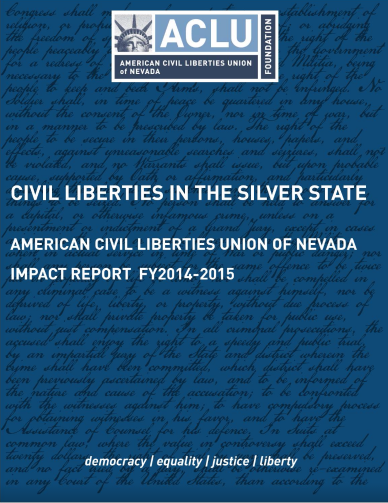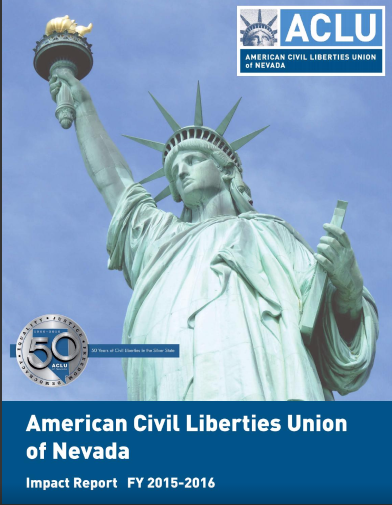By Nicky Vogt, Communications Strategist
In March, the ACLU will be in front of the U.S. Supreme Court to defend the right to a day in court for asylum seekers and other vulnerable noncitizens. Department of Homeland Security (DHS) vs. Vijayakumar Thuraissigiam considers whether immigrants are entitled to seek judicial review of their expedited removal orders in federal court. The Ninth Circuit Court of Appeals agreed with our argument that the Constitution guarantees that individuals deprived of their liberty have their day in federal court.
That decision was a significant step towards ensuring that vulnerable asylum seekers and others will get a fair shot to prove their claims for protection, which are guaranteed by our immigration laws and the U.S. Constitution. The administration, however, subsequently challenged the ruling.
The stakes are high: The administration’s extreme arguments threaten to wipe out rights for millions of people, who have built their lives in the United States for decades.
Vijayakumar Thuraissigiam fled his home in Sri Lanka to escape torture, beatings, and likely death. Vijayakumar is Tamil, a member of an ethnic minority that the Sri Lankan government has subjected to a well-documented campaign of human rights violations. After government officers abducted and beat him, Vijayakumar fled the country and sought asylum in the United States.
But his claim was denied after a cursory and inadequate interview. Like many asylum seekers who reach the United States, Vijayakumar was placed into the “expedited removal” system. That system, created by Congress in 1996, is an alternative to the normal deportation system and applies to certain immigrants — particularly those who arrive without a visa or other immigration papers. For years, expedited removal applied almost exclusively at the border, but the administration sought to expand the program nationwide and to people who have been in the country for years. That expansion was blocked in court.
Under expedited removal, an asylum seeker has an initial short interview with an asylum officer to determine if he has a “credible fear” of return to his home country. This is supposed to be a low threshold screening interview, intended to ensure that anyone with a potentially meritorious claim is not immediately removed but instead gets a full asylum hearing as part of the regular deportation system.
If the asylum officer believes that the person does not have a credible fear, and the person wishes to appeal that decision, the next step is an often extremely cursory review in front of an immigration “judge” — who is actually an executive branch officer employed by the Department of Justice. If the immigration judge agrees with the asylum officer, then that, according to the government, is the end of the line: The asylum seeker never gets to take his case to any court and is removed “without further hearing or review.”
On behalf of Vijayakumar, the ACLU filed a case in federal court challenging this exclusion of vulnerable asylum seekers from their day in court. The Ninth Circuit Court of Appeals agreed, striking down the limits on judicial review as unconstitutional.
The Habeas Corpus Suspension Clause of the Constitution prevents the government from suspending access to the writ of habeas corpus except in certain extraordinary circumstances involving rebellion or invasion of the country. Habeas has a long and important history, tracing back to England, as a primary check against the government’s ability to restrain people’s liberty without legal justification.
As the Supreme Court has explained, the framers of the Constitution “viewed freedom from unlawful restraint as a fundamental precept of liberty, and they understood the writ of habeas corpus as a vital instrument to secure that freedom.” The Suspension Clause guarantees that this “vital instrument” remains available, even when it is inconvenient to the government.
That constitutional provision has always meant that courts stand ready to ensure that the government plays by the rules when it comes to deportations. As the Supreme Court said, looking back on a century of its case law in 2001, “some ‘judicial intervention in deportation cases’ is unquestionably ‘required by the Constitution.’”
Oral argument in the case will be held on March 2. The question before the Justices will be whether to adhere to the Court’s prior decisions, and hold that Vijayakumar is entitled to make his case to a neutral federal judge. If it does so, Vijayakumar should finally get what he has so far been denied — a fair shot to establish his case for asylum and secure safety here in the U.S.. If it does not, the implications for asylum seekers and noncitizens across the country would be extraordinary, raising the specter that lawlessness by immigration agents could be totally immune from court review. Especially in light of the abuses we have already seen in this administration’s immigration policies, that kind of impunity would be unacceptable — and unconstitutional.

